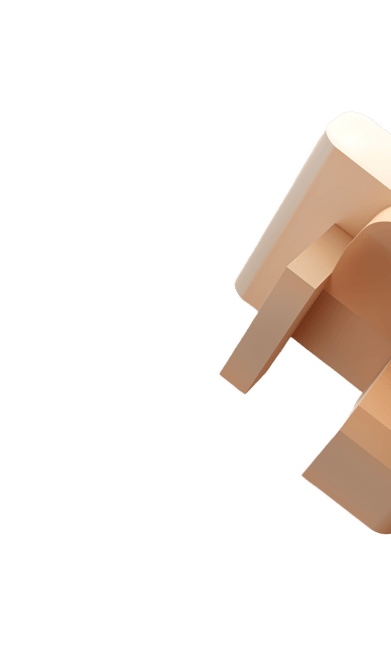Average Deposit for a House in the UK
Is a bigger deposit really better? Find out how the bigger the deposit impacts your mortgage, how first-time buyers can save for it, and uncover key home mover insights.
How much deposit do first-time buyers need?
As a first-time buyer, you can put down as little as a 5% mortgage deposit on a standard repayment mortgage to get onto the housing ladder.
With high UK house prices, however, even raising a 5% deposit is easier said than done. Thankfully, multiple homeownership schemes are available to first-time buyers. From Deposit Unlock to Joint Borrower Sole Proprietor Mortgages, first-time buyers should research all the available deposit-boosting strategies.
As a rule, the bigger your deposit, the less you’ll have to borrow for your mortgage, and the lower your mortgage repayments will be. This is your ‘Loan-to-Value’ ratio (LTV): the percentage of total property value you pay for with your mortgage. The bigger your LTV, the lower your risk of running into negative equity, where you owe more than your house is worth.
A larger deposit can also give you access to better mortgage deals, reducing your overall interest payments.
If you decide to put down a small deposit, such as 5% or 10%, you’ll take out what’s known as a high LTV mortgage (due to the high interest rates you may pay due to putting down a low deposit). Remember, this is just a general guide: it’s up to you to decide how much you can or are willing to put down (always ensure you have an emergency fund). This is where a mortgage adviser will support you, too.
What our data says: average deposit for first-time buyers
Our data indicates that for first-time buyers:
The median deposit value in March 2025 is £48,350.
The median property value in March 2025 is £370,500.
The median mortgage term in March 2025 is 30 years.
This gives us a 14.65% median deposit value (or 86% LTV) for March 2025.
(The median is the middle in a sorted list of numbers. This allows us to remove outliers that skew data ‘averages’, making the figure more reliable.)
Building as large a deposit as possible could be wise as long as interest rates are considered high. This will give you the best chance of qualifying for a mortgage with a lower interest rate.
This is a trend we are seeing in our monthly data: the median deposit size for first time buyers has been trending up since January 2024.
What our data says: average deposit for home movers
Our data indicates that for those looking to move up the property ladder:
The median deposit value in March 2025 is £75,000.
The median property value in March 2025 is £370,500.
The median mortgage term in March 2025 is 26 years.
This gives us a 20.24% median deposit value (or 80% LTV) for March 2025.
(The median is the middle in a sorted list of numbers. This allows us to remove outliers that skew data ‘averages’, making the figure more reliable.)
Home Movers will have naturally built up more equity thanks to time in the property market. However, there is much more of a flat trend compared to first time buyers. This suggests that many people look to move once they have roughly 20% equity built up.
How to build your house deposit
Work out the following:
Where you want to buy (read our guide on finding the right neighbourhood)
How much you can afford to borrow (use our mortgage calculator to help you do this)
How big a deposit you want to save
Consider the average house prices in different regions, as this will affect how much you need to save for your deposit.
Consider the current interest rates as they will affect your mortgage repayments and overall affordability.
How you’ll save
How much you can save each month
How first-time buyers can boost their deposit
Consider opening a Lifetime ISA. This allows you to contribute up to £4,000 per year to an ISA, which the government tops up by 25% (up to £1,000 maximum per year). It's designed to go towards either your first home or your retirement.
Family members with existing property might consider taking a secured homeowner loan or equity release remortgage to free up cash that can be gifted as a deposit.
For further information on how family members can help you buy a home, read our complete guide.
How to save for a property FAQs
Due to soaring demand for properties during the pandemic, the government introduced the 95% mortgage scheme for all home buyers on properties up to £600,000. While this scheme ensures more people can get onto the property ladder for the first time, interest rates for 95% mortgages can be high. However, be aware of the risk of negative equity, where the value of your property falls below the amount you owe on your mortgage.
Due to the cost of living and rising inflation, 95% mortgages have seen a gradual uptick in applications. As such, they represent a real path onto the property ladder for many first-time buyers. Despite the challenges, first-time buyers save diligently to meet the deposit requirements.
View more information about 95% mortgages here.
A 10% mortgage deposit (or a 90% mortgage) is arguably the ‘standard amount’ to save for a deposit. It gives you access to better rates than 95% mortgages, and often, estate agents may look for a 10% deposit to push any offer forward due to less risk. For example, the typical first-time buyer in Scotland often pays an average deposit that varies depending on the property value and region.
For more information about 90% mortgages, visit our complete guide.
You can get a mortgage with no deposit, but they’re not common. This is a 100% LTV mortgage. You’re more likely to get a no-deposit mortgage by getting a guarantor mortgage. For a guarantor mortgage, you’ll need to have a family member or friend who will guarantee the payments for you. The guarantor will need to own their property. If you miss any mortgage payments, your guarantor is responsible.
While 100% mortgages are an option, they often offer less favourable mortgage deals than those with larger deposits.
Some lenders, like Kent Reliance, offer 100% mortgages on the shared ownership scheme. Government schemes like Right to Buy may mean you do not need to save a deposit. This is because you could use the discount the scheme offers to cover the deposit.
There are drawbacks to choosing a 100% mortgage:
lenders charge a higher rate
your monthly repayments are higher than they would be with a larger deposit
you’ll pay more in total than you would with a larger deposit because of the amount of interest you’ll have to pay
lenders will look for an almost perfect
risk of negative equity
If you go for a 100% mortgage, remember there can be a higher financial risk. You’re more likely to fall into negative equity if house prices drop if you borrow 100% of the property value. Negative equity is when your property’s value is less than the amount you borrowed for it. You’d still have to pay back the amount you agreed on when you bought it.
Some lenders might ask for a deposit if you want to buy your council property.
Others let you use the discount you get with Right to Buy for a deposit.
Find out how you can buy your council house in our Right to Buy Guide
Get a mortgage with Better.co.uk today
Better.co.uk is a fee-free mortgage broker
4.8-star Trustpilot rating from over 9,000 reviews
Compare mortgage deals from over 100 lenders
Get matched with the right legal team with SmartBuyer
Fund a big expense with a Homeowner Loan
Mortgage resources
What people are saying about Better.co.uk...

Important info & marketing claims
You may have to pay an early repayment charge to your existing lender if you remortgage. Your savings will depend on personal circumstances.
Your home may be repossessed if you do not keep up repayments on your mortgage.
*89% of customers will be better off using Better.co.uk rather than going direct with their lender. Read more on our marketing claims page.
We can't always guarantee we will be able to help you with your mortgage application depending on your credit history and circumstances.
Average mortgage decision and approval times are based on Better.co.uk's historic data for lenders we submit applications to.
Tracker rates are identified after comparing over 12,000 mortgage products from over 100 mortgage lenders.
As of January 2023, Better.co.uk has access to over 100 lenders. This number is subject to change.
For buy-to-let landlords, there's no guarantee that it will be possible to arrange continuous letting of a property, nor that rental income will be sufficient to meet the cost of the mortgage.

